By Dr. Saraswathy Thangarajoo, PhD, Senior Lecturer, Nursing Department, FMHS, UNIMAS
Co-authors: Dev Nath Kaushal (Nursing), Christina Busak (Nursing), Isabel L. Fong (Paraclinical Sciences)
List of contributors (Faculty of Medicine and Health Sciences)
Surgical Department
- Prof. Dr. Chew Keng Sheng, Prof. Dr. Nariman Singmamae,
Medical Department
- Prof. Dr. Kuan Jew Win,
Community Medicine and Public Health Department
- AP Dr. Helmy bin Hazmi,
Medical Education Unit
- Dr. Shazrina Binti Ahmad Razali
Nursing Department
- AP Dr. Rekaya Anak Vincent Balang, Dayang Zuraina Abang Haji Kashim, Ibi Gibreson, Hanriatta Anak Hamis, Chin Chew Lan
Paraclinical Sciences
- AP Dr. Ashley Edward Roy, AP Dr. Isabel Fong Lim, Dr. Melissa Lim
Introduction
Interprofessional education and collaborative practices (IPECP) are fundamental to the future of healthcare, fostering a multidisciplinary approach to patient care that prioritizes safety, minimizes medical errors, and promotes effective teamwork. For nursing and medical students, learning to collaborate across disciplines can make a significant difference in patient outcomes. The World Health Organization (WHO) recognized this in 2010 with the publication of the Framework for IPECP, a comprehensive strategy designed to enhance collaboration in healthcare settings. This approach helps students develop the essential competencies needed to provide safe and effective patient care. According to a Malaysian study by Thangarajoo et al. (2021), health professionals with IPECP training show a marked improvement in their self-assessment, attitudes, and perceptions of collaborative practices.
In this context, the Faculty of Medicine and Health Sciences (FMHS), Universiti Malaysia Sarawak (UNIMAS), recently hosted an impactful two-week IPECP Edu-tourism student mobility program aimed at enhancing cooperation between institutions, fostering cross-cultural learning, and improving interprofessional collaboration for medical and nursing students.
A Bridge of Collaboration: The UNIMAS and UNTAN Partnership
From September 9th to 20th, 2024, a total of 20 students from the Faculty of Medicine at Universitas Tanjungpura (UNTAN), Pontianak, Kalimantan, Indonesia along with faculty members such as Dr. Ery Hermawati (Vice Dean Academic Medical Faculty), Dr. Ikbal Fradianto (Head of Bachelor of Nursing Program), and Dr. Augustina Arundina (IPECP module coordinator) attended the program at UNIMAS. This initiative aimed not only to improve cooperation between the two universities but also to promote the exchange of knowledge, enhance collaborative practices in healthcare, and provide students with the practical tools necessary for ensuring patient safety and to deepen the understanding of shared cultural values between Malaysia and Indonesia. The program was officially launched on September 9th , 2024, at the Atrium of FMHS, UNIMAS, and was officiated by the Dean of FMHS, Prof. Dr. Asri Bin Said.
Curriculum and Activities
Throughout the two-week program, the students attended lectures, participated in hands-on simulation exercises, and engaged in community-based projects aimed at enhancing their collaborative skills in healthcare settings. The focus was on key patient safety aspects, including infection control practices, medication safety, and team dynamics in medical emergencies.
In the first week, the students were introduced to the fundamentals of IPECP through lectures and interactive learning materials provided on the UNIMAS Learners for Life learning management system. The topics covered included hospital-acquired infection control, medication safety, and communication strategies in healthcare teams. This theoretical knowledge was complemented by practical, scenario-based simulation exercises. Students participated in role-playing activities and practiced essential skills in a simulated hospital environment, focusing on resuscitation and teamwork.
Simulated Scenario Practices

Simulated Scenario Practices
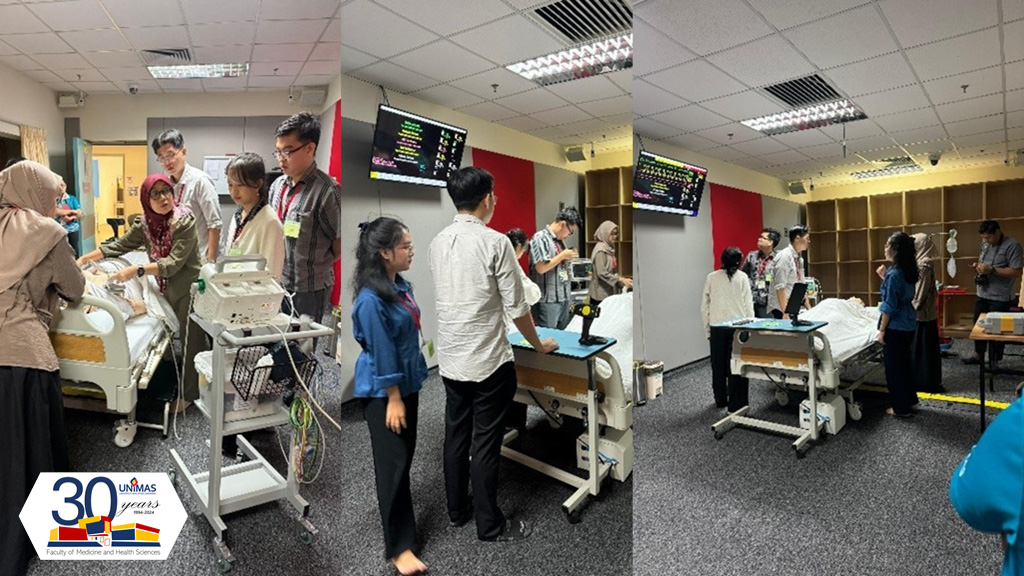
Student groups practicing on a high-fidelity electronic patient simulator in the demonstration room of the Clinical Simulation Centre’s Simulation Suite.
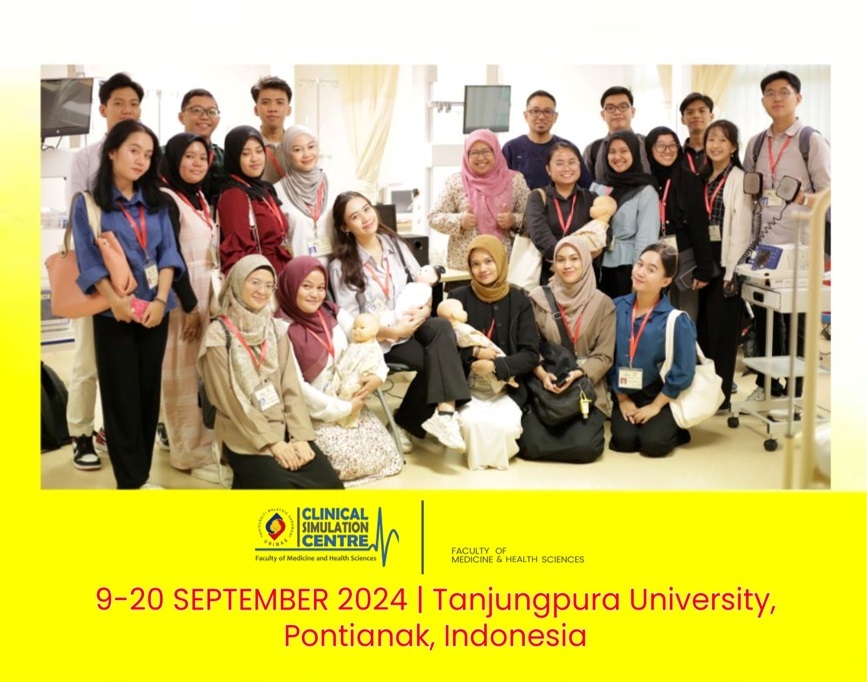
Students touring the Simulated Ward in the Clinical Simulation Centre
The simulation exercises were a highlight of the program, providing students with the opportunity to work in multidisciplinary teams while applying their knowledge of patient safety in real-world scenarios. One such exercise involved a resuscitation team dynamics drill, which was conducted using high-fidelity electronic patient simulators in the Clinical Simulation Centre at UNIMAS. This activity required participants to assume different roles in a multi-disciplinary resuscitation team, communicate effectively under pressure, and demonstrate teamwork and mutual respect. These activities reinforced the importance of interprofessional collaboration in high-stakes situations.
Additionally, students practiced two simulated scenarios: hospital-acquired infection control practices and medication error management. These scenarios allowed students to work collaboratively in applying infection control procedures, blood-taking protocols, and safe medication administration, all while adhering to IPECP competencies.
Visit to Healthcare Institutions
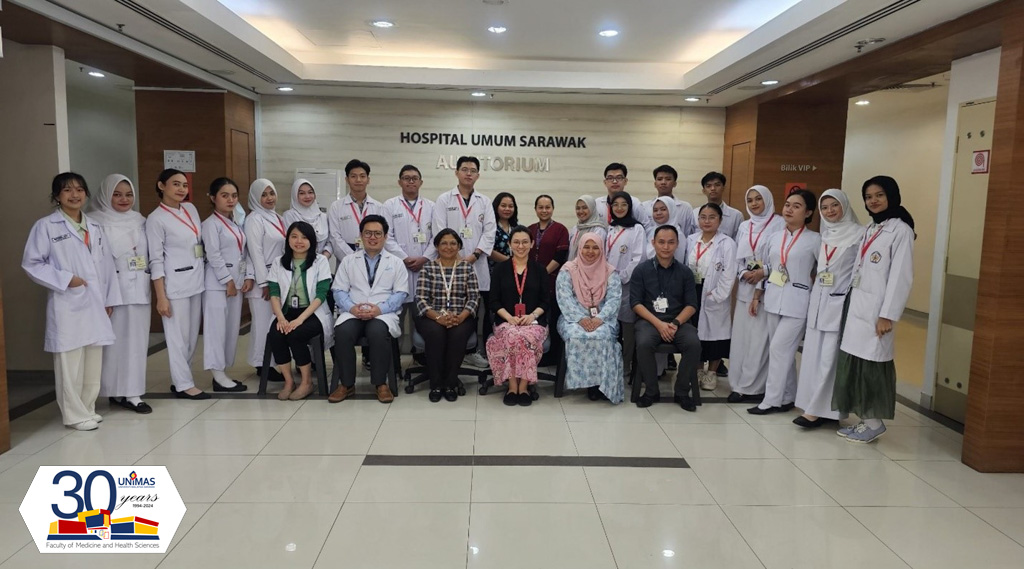
Hospital Umum Sarawak
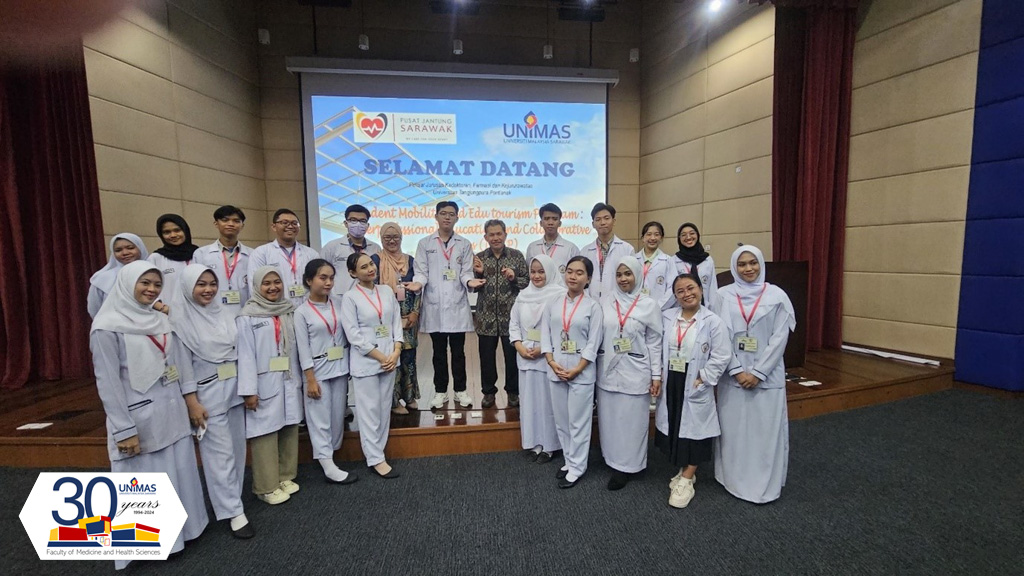
Pusat Jantung Sarawak
During the program, students also visited several leading healthcare institutions, including Sarawak General Hospital, Sarawak Heart Centre, KPJ Kuching Specialist Hospital, and Normah Medical Specialist Centre. These visits allowed students to observe real-world applications of infection control and medication safety practices. Lectures were delivered by clinicians, nurses, and pharmacists, providing valuable insights into the daily practices and challenges in healthcare settings.
Community Outreach: Collaborative Practices in Action
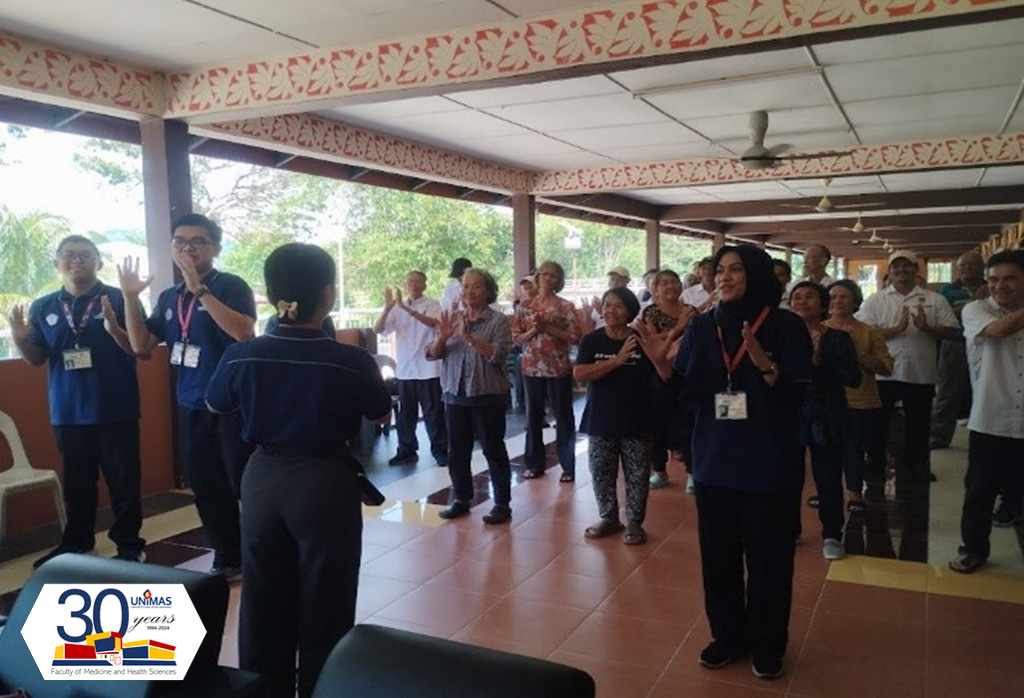
Exercise with the community at Kampung Pichin.
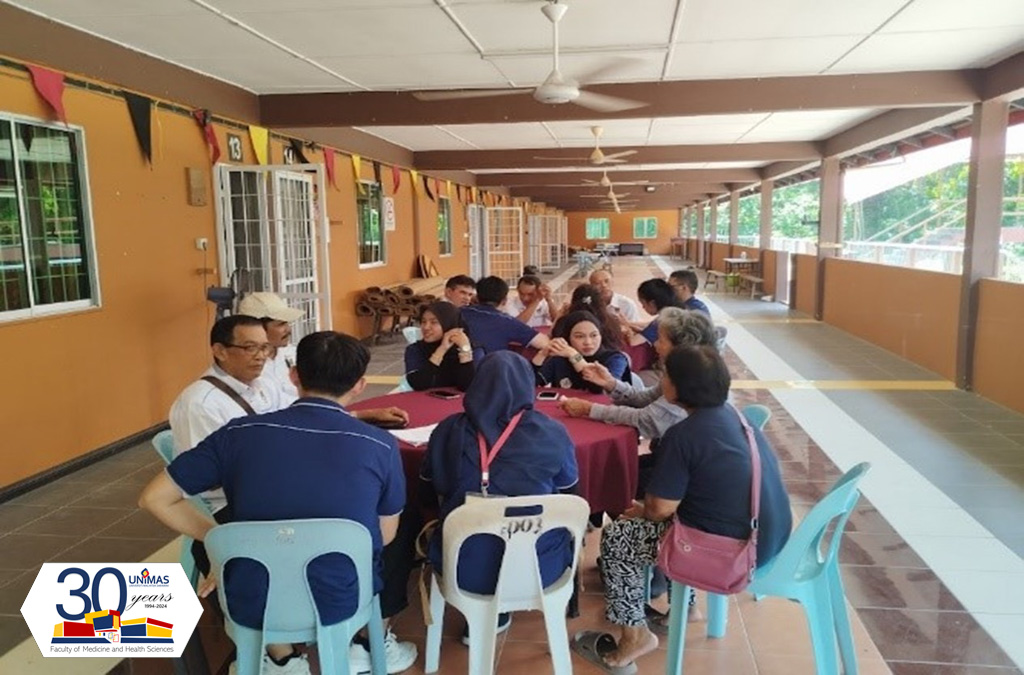
Conducted health assessment by interviewing the clients. Health education provided simultaneously
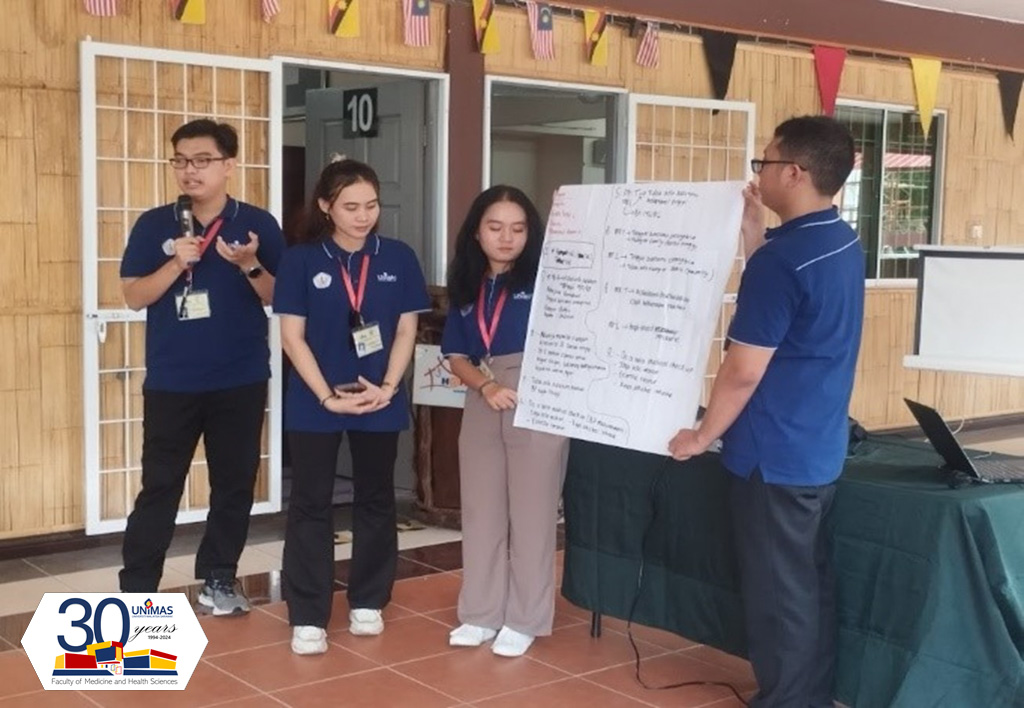
Group Presentation
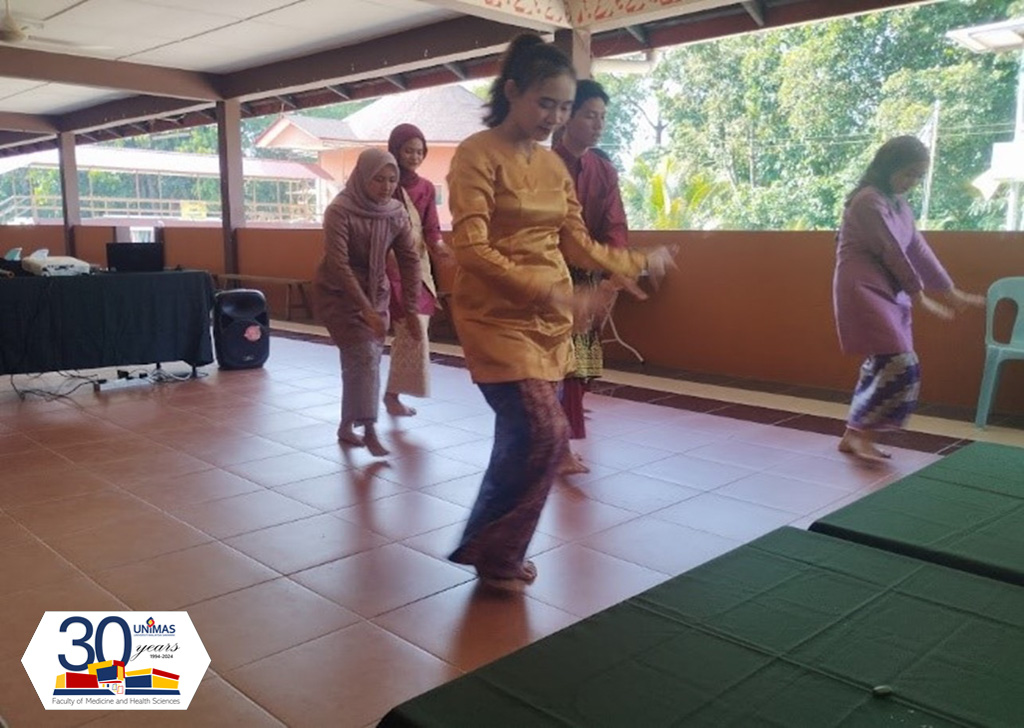
Tari Jepin Dance performance by students from Universitas Tanjungpura (UNTAN)

Students from Universitas Tanjungpura (UNTAN) and members of the Kampung Pichin community who attended the program.
One of the most rewarding aspects of the program was the community outreach project in Kampung Pichin, Serian. This initiative aimed to introduce the students to the local Bidayuh community and provide them with an opportunity to apply IPECP principles in a real-world, community-based setting. The students engaged in health education activities, including diabetes and hypertension screenings, blood pressure and blood sugar measurements, and basic health assessments. The students also performed an Indonesian dance for the villagers, further strengthening the cultural exchange between Malaysia and Indonesia. This community-based approach highlighted the importance of healthcare providers working together in the community to improve public health outcomes.
The students also collaborated on presenting their findings from the health assessments and submitted written reflections on the experience. This activity emphasized the importance of reflection in healthcare practice and the role of communication and collaboration in achieving positive health outcomes.
Cultural and Recreational Activities
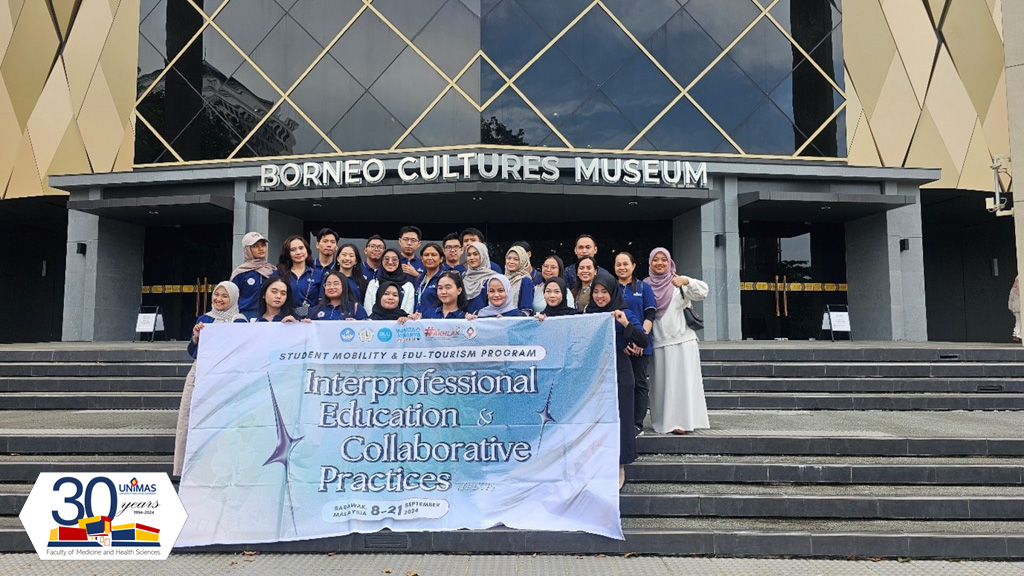
Beyond the educational and community-focused activities, the program also included a series of cultural and recreational excursions around Kuching. The students visited the Borneo Cultures Museum, the Kuching Waterfront, and the Vivacity Shopping Mall, allowing them to immerse themselves in the local culture and enjoy the natural beauty of Sarawak. These activities provided opportunities for students from these neighbouring countries to bond and share experiences, enriching the cultural exchange aspect of the program.
Closing Ceremony
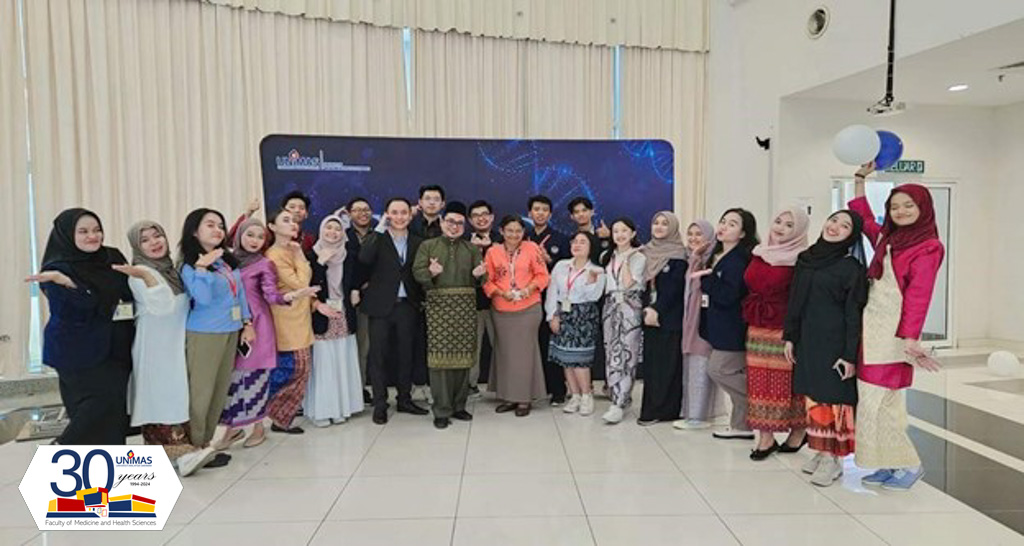
The program concluded with a vibrant closing ceremony at the FMHS Atrium, where students from UNTAN performed an Indonesian dance to celebrate the success of the two-week program. Prof. Dr. Asri Bin Said expressed gratitude to the students, faculty members, and organizing team for their hard work and participation, emphasizing the program’s success in fostering interprofessional collaboration and cultural exchange.
Conclusion
The IPECP Edu-tourism student mobility program at UNIMAS has demonstrated the significant benefits of interprofessional collaboration in medical education. This program will serve as a foundation for future initiatives, promoting ongoing collaboration between UNIMAS, UNTAN, and other institutions. As the healthcare landscape continues to evolve, fostering interprofessional education remains crucial in preparing the next generation of healthcare professionals to provide safe, effective, and patient-centered care.
References:
Interprofessional Education Collaborative Expert Panel. (2011). Core competencies for interprofessional collaborative practice: Report of an expert panel. Washington, D.C.: Interprofessional Education Collaborative.
Thangarajoo, S., Rosliza, A.M., Nalliah, S. et al. Self-assessment, attitude and perception of interprofessional learning in hospital acquired infection control practices among health professionals in Klang Valley, Malaysia. BMC Med Educ 21, 243 (2021). https://doi.org/10.1186/s12909-021-02610-1
World Health Organization (WHO). (2010). Framework for action on interprofessional education and collaborative practice. World Health Organization. https://apps.who.int/iris/handle/10665/70185